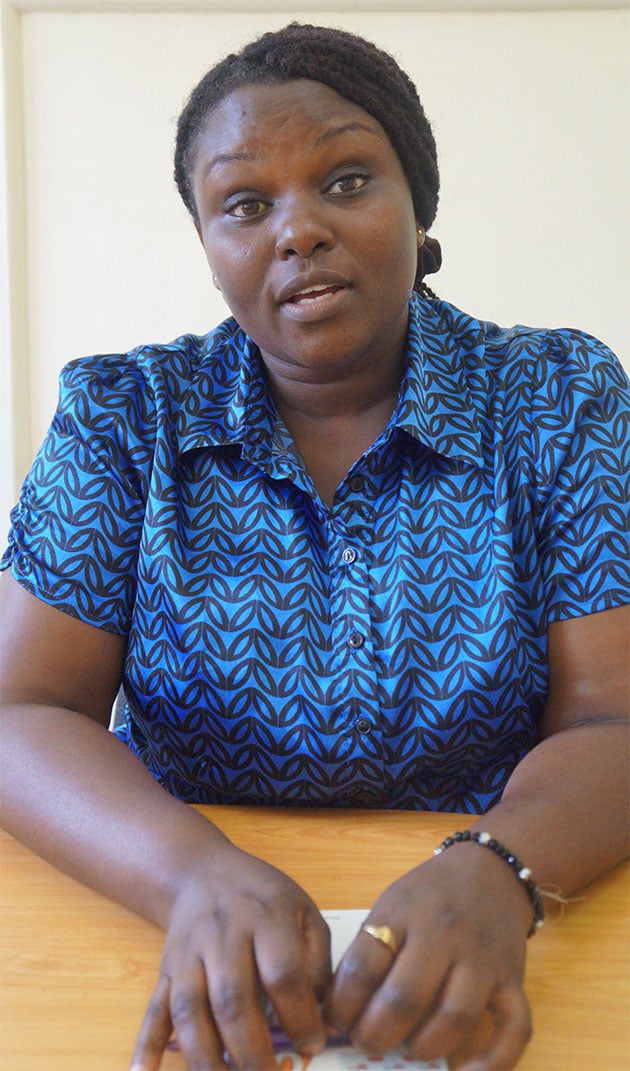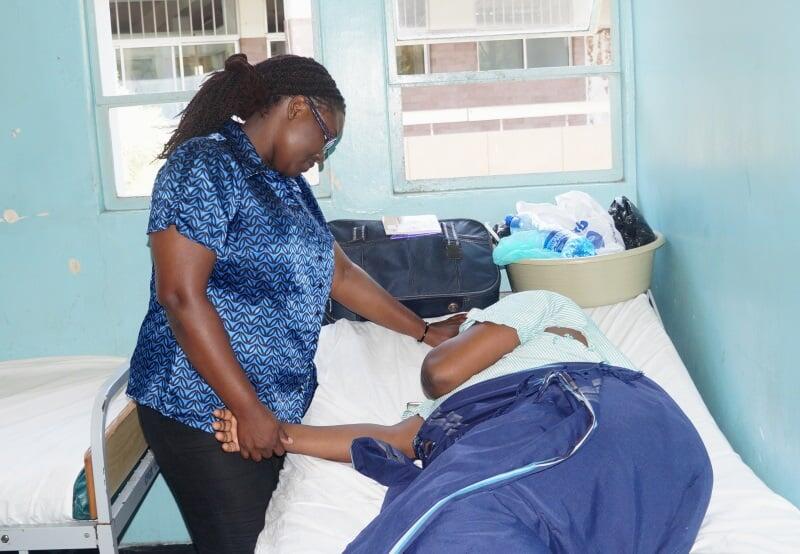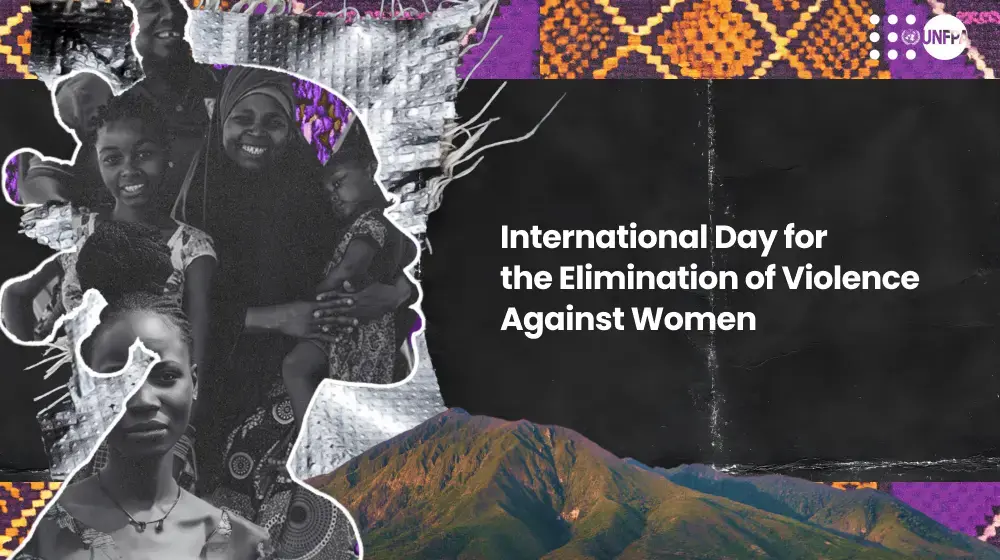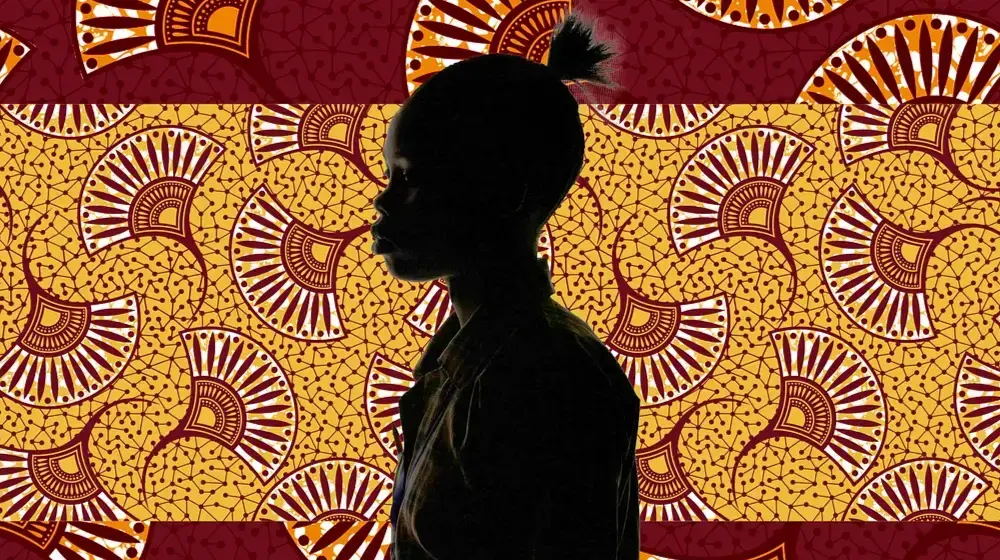BOMBOLULU, Coast Region, Kenya – A counsellor’s personal coping mechanism for work-related trauma – writing in her diary – had another unexpectedly positive result. It led to the arrest of a serial rapist in her area.
Over the years, Christine Banu had developed a method for coping with the trauma of working with victims of gender-based violence: every evening she would write a summary of the day’s cases in her personal diary at home. Ms. Banu worked as a counsellor at the Coast General Hospital Gender Violence Recovery Centre, which is supported by UNFPA.
My diary is the place I offload and by the time I go to sleep I feel less disturbed about the cases. – Christine Banu, GBV counsellor

“My diary is the place I offload and by the time I go to sleep I feel less disturbed about the cases,” she said. Often, the personal trauma that counsellors face is overlooked because people assume they are immune to stressful events.
Writing about her day helped her deal with the stress of her work – but more recently she has developed a special appreciation of her diary, following the arrest of a serial rapist who had evaded detection for two years.
“When the parents of a two-year-old girl narrated the circumstances surrounding their toddler’s rape, I remembered recording three similar cases,” Ms. Banu said. “It was by sheer luck that I made the connection.”
In all six cases, the children had been playing outside their homes when a stranger had approached, offering to buy viazi karai, the local name for French fries. The man carried his victims to a nearby bush, raped them and left them there, helpless.
At first it was difficult to get the local police to agree that there might be a serial rapist in the community, so Ms. Banu worked with the village chief, who in turn informed the Sungu sungu, a vigilante group. The local radio station was brought on board to help create awareness and word went round to families to be on the lookout for this man.
It was the quick action of a six-year old boy that finally led to the serial attacker’s arrest. When a stranger took his little sister away with the promise of giving her viazi karai, the boy ran to the house to call his father.
Soon a manhunt was mounted and the man was caught after the little girl’s cries were heard deep in the bush.
But he died after being beaten up by a mob of people as the police were taking him to the local station at Bombolulu.
Rape and sodomy, which are very common in the coast region, have been shown to lead to high-risk sexual behaviours. – Dr. Dan Okoro, SRH Programme Officer, UNFPA
Rape leads to high-risk sexual behaviours
According to the International Centre for Reproductive Health (ICRH), a partner of UNFPA in the coast region of Kenya, seven out of every ten cases of gender-based violence involve rape.
“Rape and sodomy, which are very common in the coast region, have been shown to lead to high-risk sexual behaviours, including early sexual debut, multiple partners, unprotected sexual intercourse and sex work,” said Dr. Dan Okoro, a Sexual and Reproductive Health Programme Officer at UNFPA Kenya. In addition, some survivors suffer severe physical and psychological trauma that may last for their lifetime.
ICRH has been training counsellors and paralegals to deal with an increasing burden of cases of gender-based violence in the region, many which are attributed to unemployment and drug use.
GVB counsellors need couselling
Because they witness so much suffering in the course of their work, some of the staff members at the Centre experience depression and psychological trauma. They receive counselling every two months to help them cope with this.
According to Ms. Banu, Mondays and Tuesdays are particularly stressful due to the sheer number of cases that accumulate over the weekend, as the Centre does not operate on weekends.
“It is not unusual to find people who have slept on the benches of the hospital through Saturday and Sunday, waiting for us to open the Centre on Monday morning. One can imagine the pain of their violent ordeal and spending two nights on the bench,” she said.
She now plans to seek help in publishing her book as a series of case studies: “I intend to follow up some of the past cases we have dealt with and document their progress, just to see what kind of long-term impact our interventions are having.”
By Bernard Muthaka





